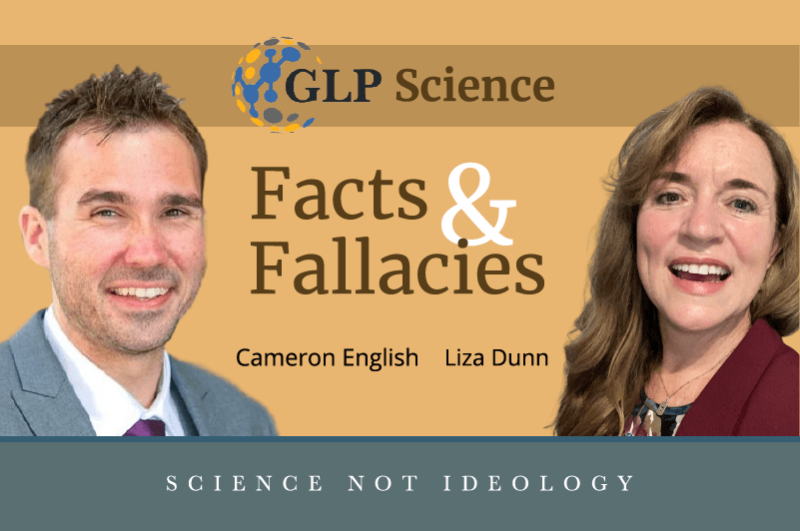Podcast:
Join hosts Dr. Liza Dunn and GLP contributor Cameron English on episode 263 of Science Facts and Fallacies as they break down these latest news stories:
The definition of “organic” is always shifting. It means pesticide-free. It means fewer pesticides. It means healthier. It means safer. There’s no definable standard. Thanks to crafty marketing and outsized advertising budgets, most people have been misled to believe organic is superior to conventional — and that’s not your fault, says immunologist Dr. Andrea Love. This misinformation is everywhere. The reality? Organic foods are not better, just more expensive
In France, news broke of an individual who analyzed his water and found traces of more than 200 pesticides. This story spread like wildfire — despite the fact that these claims crumble under inspection. First lie: He did not actually get his tap water analyzed. Second lie: There’s no proof the chemicals are even there. Tests have sensitivity thresholds, and anything below that Social media networks like Facebook and X (Twitter) are often accused of spreading false news. But this example shows us once again that the traditional press, even established news organizations not necessarily more rigorous.
Dr. Liza Dunn is a medical toxicologist and the medical affairs lead at Bayer Crop Science. Follow her on X @DrLizaMD
Cameron J. English is the director of bio-sciences at the American Council on Science and Health. Visit his website and follow him on X @camjenglish































